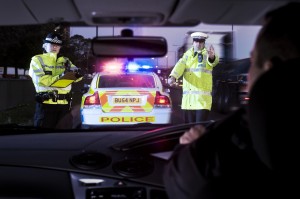 The Law has changed and drug driving rules now apply in the United Kingdom.
The Law has changed and drug driving rules now apply in the United Kingdom.
As motorists in Great Britain have become used to ensuring that we have seat belts on, of vehicles MOT’d and covered with insurance and taxed. Once on the road, failure to stick to the speed limit is now quickly becoming socially unacceptable in a similar way that driving drunk went from ‘normal’ to being understood as bad and socially not acceptable.
From 2 March 2015, the police could very well also prosecute you if you have illegal drugs in your system for example, cocaine, heroin and diamorphine, methyl amphetamine and cannabis, but also, there are a range of prescribed medicines that may be tested for at the roadside. Kwik-Fit insurance services asked 1028 adults to explain what the new legal drug-drive controls were. It was not a surprise that not one person was able to answer or explain the new controls. Lorazepam (anti-anxiety), Diazepam (an anti-anxiety drug), Flunitrazepam (Rohypnol – sedative), Clonazepam (which is used to treat seizures and panic attacks), Temazepam (anti-anxiety and sedative) and Oxazepam (anti-anxiety) are just a few of the more common prescription drugs.
The limits for almost all of prescription drugs are higher than the normal dose, meaning if you’ve been particular drugs by a qualified doctor and are able to prove this then of course this is not a problem. The guidelines once convicted of being over the legal limit suggest, up to a £5000 fine, a minimum 1 year ban and a criminal conviction. Many of the major insurance providers are declining to insure anyone convicted of a drug-driving offence and pay a visit to specific countries is going to be harder if not impossible.
Being in charge of a motor car is a considerable responsibility. If you are over either the alcohol or drug limits; you risk prosecution but additionally causing a fatal accident. When you consider it, it’s pretty worrying that there are people on the roads driving without the correct glasses or visual correction and that there are certainly people driving with anxiousness disorders. Our vehicles have become a main source of independence, getting us from one location to another without difficulty and inexpensively. The services provided by our public transport are not necessarily on time, go where we would like or as quickly as we would like, let alone the cost yet some drivers prefer to drive without thought of consequences. An individual must understand that driving is a responsible thing to do. If you know that your anxiety is increased through driving a motor vehicle, should you be behind the wheel at all?
On the list of legal medicines that are included in this new law, drugs which might be used to tackle anxiety stand out as those which could see you above the limit. Since there are a number of anxiety treatment medicines available, why not ask your GP about one that that will not affect your driving capacity?
By seeking the services of a well-qualified and experienced hypnotherapist, panic and anxiety conditions can be eliminated or vastly reduced. Hypnotherapy does offer a real alternative option to medicine. It is accepted this hypnotherapy treatment may not be for every individual, but for the majority of people it is an extremely successful way to reduce and lower panic, anxiety and stress, not only providing a more rewarding quality of life but also making you safer on the roads and responsible when driving.
Sally Moore from Hypnotherapy Lincolnshire based in Woodhall Spa & Lincoln, Lincolnshire has helped numerous clients tackle panic, anxiety, stress and additions. With all hypnotherapy inquiries there is a half an hour, free, no obligation consultation.

